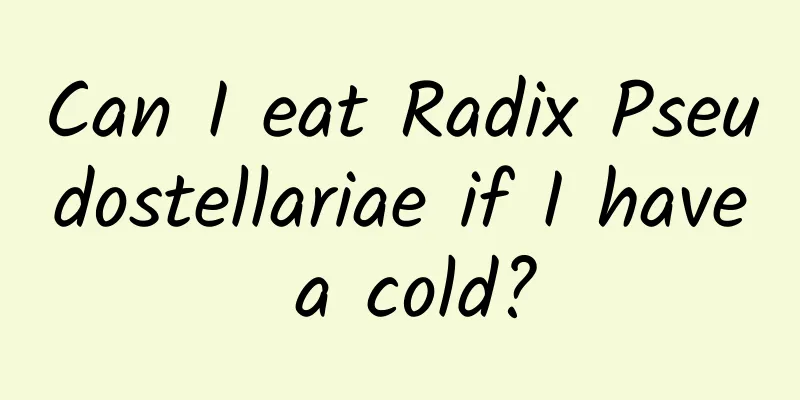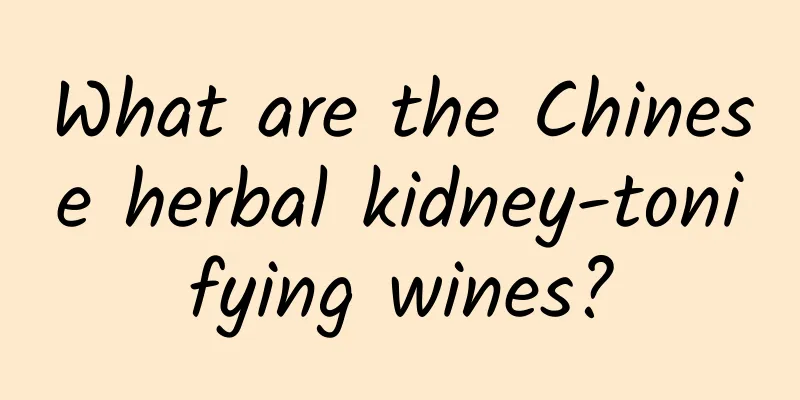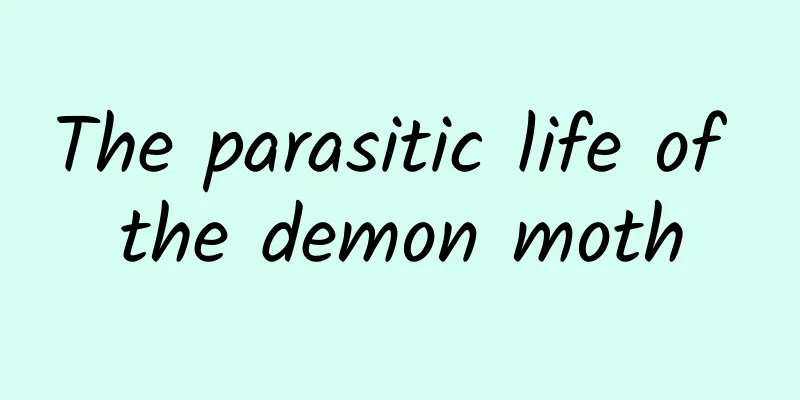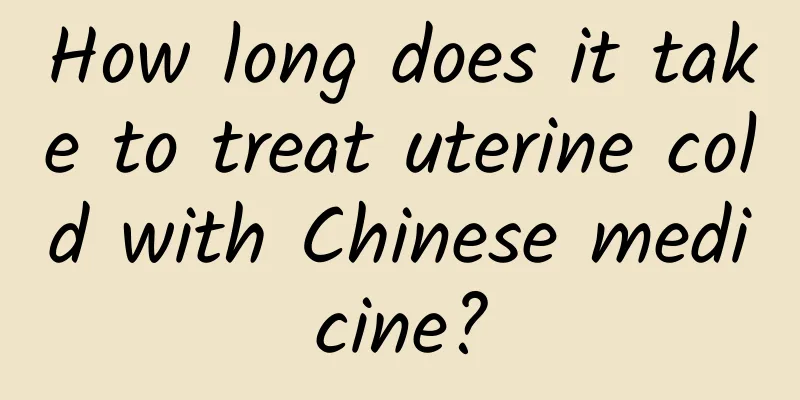Can I eat Radix Pseudostellariae if I have a cold?

|
When you have a cold, there is heat in your body, so it is best to eat a light diet at this time. Also, try not to take some tonic medicines during a cold. For example, it is best not to take Pseudostellaria baicalensis, because Pseudostellaria baicalensis is a warm tonic herb. It will cause cold patients to get angry, which is not conducive to the treatment of the cold and will aggravate some of the patient's cold symptoms. Let's take a look at this aspect. Can I eat Radix Pseudostellariae if I have a cold? Many people will catch a cold when the weather gets cold, and Pseudostellaria baicalensis is also a common medicinal ingredient for making soup at home, so many people will wonder whether they can eat Pseudostellaria baicalensis when they have a cold. Some people believe that Pseudostellaria baicalensis can nourish the spleen and lungs, replenish qi and produce body fluids, and can effectively treat fever and cough symptoms caused by colds. Others believe that eating Pseudostellaria baicalensis for colds will have side effects and be bad for the body. So can you eat Pseudostellariae Radix if you have a cold? Will there be any side effects after eating it? Let's reveal the answer below: Colds are divided into wind-heat type colds and wind-cold type colds. Wind-cold type colds occur more frequently in autumn and winter and are generally caused by wind-cold, with symptoms such as fear of cold, cough, and thin white tongue coating. Prince ginseng is warm in nature, nourishes the spleen and lungs, replenishes qi and produces body fluids, can moisten the lungs, and treat coughs and thirst. Wind-heat type cold is caused by the invasion of wind-heat energy, and occurs more frequently in spring and summer. Symptoms generally include fever, headache, sweating, sore throat, cough, etc. You should not eat Pseudostellaria baicalensis if you have a wind-heat type cold, because Pseudostellaria baicalensis is a warming and tonic herb. Eating it will make the wind-heat in the body more vigorous, which is harmful to the body. So it doesn’t mean that you can’t eat Astragalus membranaceus when you have a cold, it’s just that it’s not suitable for wind-heat colds. Are there any side effects of taking Radix Pseudostellariae for a cold? Based on the above analysis, eating Pseudostellaria baicalensis for a cold will produce two completely different results. Wind-heat type colds are caused by wind-heat invading the body surface and disharmony of lung qi. There is already wind-heat rampant in the body. At this time, eating Astragalus membranaceus is like adding fuel to the fire, making the wind-heat evil in the body more vigorous and aggravating the condition. You may have a high fever, persistent cough, sore throat, etc. These are the side effects of taking Pseudostellaria baicalensis for a wind-heat type cold. The medicinal value of Pseudostellaria heterophylla is very high. People can eat it often and it is very nourishing to the body, but it cannot be eaten casually. Traditional Chinese medicine emphasizes dialectical treatment. Through the above analysis, if we want to eat Pseudostellaria baicalensis when we have a cold, we must learn to distinguish what type of cold we have, so as to decide whether we can eat Pseudostellaria baicalensis to avoid adverse effects. |
>>: Dendrobium officinale and American ginseng
Recommend
The efficacy and function of rat tongue grass
Rat tongue grass has a long history, and up to no...
The efficacy and function of cat oil
Do you know cat oil? It is a common Chinese medic...
What are the Chinese medicines for kidney tonification?
Women in middle age will have dark yellow skin, f...
Three of them exploded. I really don’t recommend buying this kind of toy for children!
Balloons are many children’s favorite toys. Go to...
The leader of their migration is actually an airplane?
Right now, an incredible feat is taking place in ...
Moon dust looks like this! The microscopic universe under the microscope
Electron microscope view of a diatom Silicon chip...
The latest evidence: The romantic "nuptial flight" in the insect world existed 100 million years ago!
Swarm is a group gathering behavior that occurs d...
The effects and functions of bitterwood root
As for bitterwood root, I think some people may h...
The "magic medicine" in the drama is no longer hard to find? Sowing Tianshan Snow Lotus seeds on a 3,000-meter-high mountain!
Snow lotus grows near the snow line of the mounta...
The efficacy and function of snake basil
The medical value of snake plant is beyond our im...
Beware! You may be soaking in a fake hot spring
|||| Written by reporter Zhao Tianyu, Photo and t...
The "rice popcorn" that the birds in the trees love to eat, don't try it blindly|Expo Daily
The sky is crowed and the rice flowers are bloomi...
Was Newton's law of universal gravitation plagiarized from a book in the Ming Dynasty of China?
Recently, there have been a lot of hilarious &quo...
New clues have been added to the "origin of the moon". Where did this mysterious planet come from?
How was the Moon formed? The most mainstream hypo...
I have been living with chronic diseases for most of my life
My last name is Zhang, I am 78 years old this yea...




![[Great Country Food Policy] For the sake of human sweetness, pineapple gave up "love"](/upload/images/67effa66ad0d5.webp)




